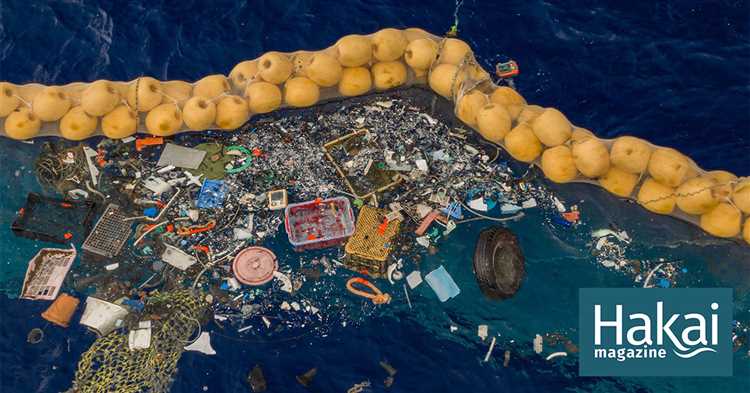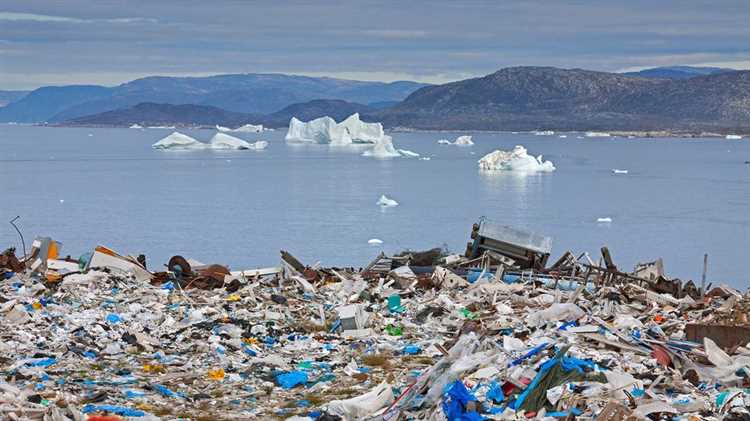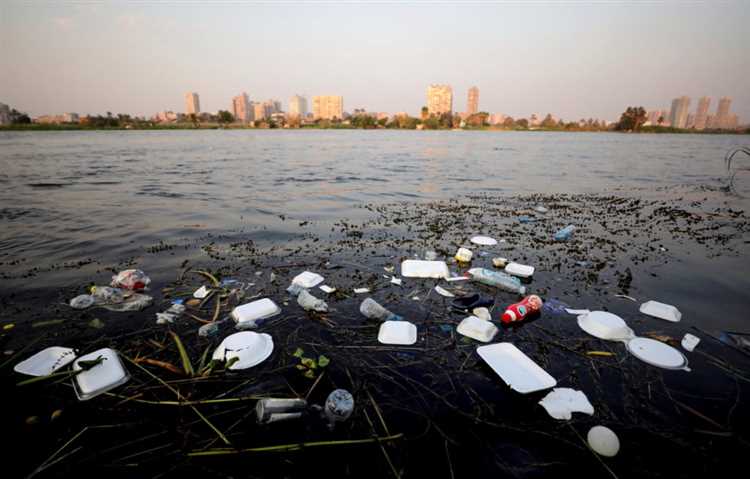
In recent years, the issue of plastic pollution has become a global crisis that demands our immediate attention. Plastic, once hailed as a revolutionary material, has now turned into a major environmental threat. From microplastics in the ocean to littered beaches, the consequences of ignoring plastic pollution are devastating on both a local and global scale.
One of the most alarming effects of plastic pollution is the harm it inflicts on marine life. As plastic waste accumulates in our oceans, marine creatures become entangled in it, suffocate, and perish. Additionally, when animals mistake plastic for food, their digestive systems become clogged, leading to starvation and ultimately death. It is estimated that millions of sea birds, turtles, fish, and other marine organisms die each year due to plastic pollution.
Moreover, plastic pollution poses a serious threat to human health. As plastic breaks down into tiny particles called microplastics, it enters the food chain and ends up on our dinner plates. Studies have shown that microplastics can accumulate in the tissues of marine animals, and when humans consume seafood contaminated with these particles, they can be exposed to harmful chemicals and toxins present in the plastic.
The economic implications of ignoring plastic pollution are also significant. Beaches covered in plastic waste deter tourists, leading to financial losses for coastal communities that depend on tourism. Furthermore, the costs associated with cleaning up plastic pollution, including waste removal and damage repair, burden governments and taxpayers.
In conclusion, the consequences of ignoring plastic pollution are not only environmental but also economic and health-related. It is imperative that we take immediate action to reduce our plastic consumption, improve waste management systems, and promote sustainable alternatives. By doing so, we can prevent further devastation and safeguard the well-being of our planet and future generations.
- The Environmental Impact
- 1. Destruction of habitats
- 2. Threat to marine life
- Effects on Marine Life
- Human Health Risks
- Economic Implications
- Global Efforts and Solutions
- Action Needed
- Educational Campaigns
- Collaboration and Innovation
- Question and answer:
- How does plastic pollution affect marine life?
- What are the long-term effects of plastic pollution?
- Is plastic pollution a global problem?
- What can individuals do to combat plastic pollution?
- What are some effective solutions to tackle plastic pollution?
- What are some of the consequences of ignoring plastic pollution?
The Environmental Impact
Plastic pollution poses a significant threat to our environment. The widespread use of plastics has led to catastrophic consequences for ecosystems and wildlife.
1. Destruction of habitats
Plastic waste, particularly in the form of single-use products and packaging, is often discarded irresponsibly. This results in vast amounts of plastic finding its way into natural habitats such as forests, rivers, and oceans. Plastic debris can smother and suffocate plants and animals, destroying delicate ecosystems and disrupting the balance of nature.
2. Threat to marine life
One of the most glaring environmental impacts of plastic pollution is its effect on marine life. Microplastics, tiny plastic particles that result from the breakdown of larger plastic items, are often mistaken for food by marine creatures. The ingestion of these microplastics can lead to starvation, suffocation, and internal injuries. Additionally, marine animals can become entangled in larger plastic items like fishing nets, leading to injury or death.
Furthermore, the chemicals found in plastic, such as bisphenol A (BPA) and phthalates, can have adverse effects on marine organisms’ reproductive systems and overall health.
Overall, the environmental impact of plastic pollution is vast and far-reaching. It is imperative that immediate action is taken to reduce plastic consumption, improve waste management systems, and promote sustainable alternatives. Failure to address this issue could result in irreparable damage to our planet and future generations.
Effects on Marine Life

The effects of plastic pollution on marine life are extensive and severe. Marine animals, both big and small, are being greatly impacted by the presence of plastic in their natural habitats.
Plastic debris is often mistaken for food by marine animals such as turtles, seabirds, and fish. This can lead to starvation and malnutrition, as the plastic fills up their stomachs, preventing them from eating real food. It can also cause internal injuries or blockages, leading to a slow and agonizing death for these creatures.
Marine mammals such as seals, dolphins, and whales are also affected by plastic pollution. They can become entangled in fishing nets, plastic bags, or other items, which can lead to injuries, infections, or even drowning. Additionally, the chemicals present in plastic can enter their bodies, causing hormonal disruptions, immune system problems, and reproductive issues.
Furthermore, plastic pollution affects the entire marine ecosystem. Coral reefs, known as the “rainforests of the sea,” are particularly vulnerable. Plastic debris can suffocate and smother the coral, preventing their growth and reproduction. This, in turn, threatens the countless species that depend on coral reefs for shelter, food, and breeding grounds.
- The presence of plastic in the ocean also disrupts the food chain. Small marine organisms, such as plankton, may mistakenly ingest microplastics, which are tiny plastic particles less than 5mm in size. These microplastics then get passed up the food chain as larger animals consume the smaller ones. Ultimately, this can lead to the accumulation of plastic in the bodies of large predators, including sharks and whales.
- In addition to physical harm, plastic pollution also introduces toxic chemicals into the marine environment. Plastics can act as sponges, absorbing toxins such as pesticides and industrial chemicals. When marine animals consume these plastics, they are also ingesting these harmful chemicals, which can have long-term health effects.
Overall, the effects of plastic pollution on marine life are devastating. It is crucial that we take immediate action to reduce plastic waste, clean up our oceans, and protect the fragile ecosystems that depend on them.
Human Health Risks

Plastic pollution poses significant risks to human health. The presence of plastic waste in the environment has led to the contamination of air, water, and soil, which can directly impact human health. Plastic debris releases toxic chemicals into the ecosystem, which can find their way into the food chain. When humans consume contaminated food or water, they can be exposed to these harmful chemicals.
Exposure to plastic pollution has been linked to various health issues. One major concern is the effect of plastic microplastics on the human body. Microplastics are tiny particles of plastic that are smaller than 5mm in size. These microplastics can be ingested or inhaled, and they have been found in various organs and tissues, including the lungs, liver, and kidneys.
- Respiratory problems: Inhaling plastic particles can cause respiratory issues, such as asthma and chronic obstructive pulmonary disease (COPD). The particles can irritate the airways and lead to inflammation, affecting lung function.
- Hormonal disruption: Many plastic pollutants contain endocrine-disrupting chemicals (EDCs) that can interfere with the body’s hormonal balance. This disruption can lead to reproductive problems, developmental delays, and an increased risk of certain cancers.
- Immune system dysfunction: Exposure to plastic pollution can also compromise the immune system. Studies have shown that the presence of microplastics in the body can impair immune response, making individuals more susceptible to infections and diseases.
- Gastrointestinal issues: Ingesting plastic particles can lead to gastrointestinal problems, including stomach pain, diarrhea, and constipation. The presence of plastic debris in the digestive system can cause irritation and inflammation.
Furthermore, plastic debris can act as a carrier for harmful bacteria and viruses. When these microorganisms come into contact with plastic waste, they can multiply and spread. If humans come into contact with contaminated plastic, they may be at risk of developing infections and diseases.
Overall, the human health risks associated with plastic pollution are significant and should not be ignored. Efforts must be made to reduce plastic waste and develop sustainable alternatives to ensure a safer and healthier future for all.
Economic Implications
Ignoring plastic pollution can have devastating consequences for the economy. The costs of cleaning up plastic waste, repairing infrastructure damage, and addressing health and environmental issues can be staggering.
Plastic pollution can directly impact industries such as tourism and fisheries. Beaches and coastal areas littered with plastic waste can deter tourists and have negative effects on local businesses. This can lead to a decline in revenue and job losses for communities reliant on tourism.
Plastic pollution in oceans also poses a threat to the fishing industry. Plastic debris can entangle and kill marine animals, disrupting the balance of marine ecosystems. This can reduce fish populations and ultimately affect the livelihoods of fishermen.
Additionally, the presence of microplastics in the food chain can have indirect economic implications. These tiny plastic particles can be ingested by marine organisms, eventually making their way to humans through seafood consumption. This raises concerns about food safety and has the potential to harm consumer demand, leading to economic losses for the fishing and food industries.
Moreover, plastic pollution can damage infrastructure such as drainage systems and water treatment plants. When plastic waste clogs up these systems, it can cause costly blockages and malfunctions. The repairs and maintenance required to address this issue can place a significant financial burden on local governments and taxpayers.
Addressing and preventing plastic pollution can save money in the long run. Investing in waste management infrastructure, promoting recycling and alternative packaging materials, and implementing policies to reduce plastic use can lead to cost savings for businesses and governments. It can also create new job opportunities in industries related to recycling and sustainable materials.
The economic implications of ignoring plastic pollution cannot be underestimated. Taking action to combat this issue is not only essential from an environmental standpoint but also crucial for safeguarding the economy and well-being of communities.
Global Efforts and Solutions
Recognizing the urgent need to address plastic pollution, countries around the world are joining forces and implementing initiatives aimed at reducing the use and disposal of plastics.
One of the key initiatives is the United Nations’ Clean Seas campaign, which aims to engage governments, businesses, and individuals to take action against marine plastic pollution. Through this campaign, countries have pledged to significantly reduce their plastic use, improve waste management infrastructure, and promote sustainable alternatives.
In addition to international efforts, many countries have taken national measures to address plastic pollution. For example, some countries have implemented plastic bag bans or taxes to discourage their use, while others have introduced deposit return systems for plastic bottles to incentivize recycling.
Furthermore, collaboration between governments and the private sector is essential for finding innovative solutions to plastic pollution. Companies are increasingly recognizing the need to reduce plastic packaging and are investing in the development of alternative materials. Partnerships between governments and businesses can foster research and development, drive technological advancements, and promote a circular economy approach to plastic waste.
Individual action is also crucial in the fight against plastic pollution. By making simple changes in our daily lives, such as using reusable bags, bottles, and utensils, we can significantly reduce our plastic consumption and waste. Additionally, spreading awareness about the consequences of plastic pollution and advocating for responsible waste management practices can generate positive change on a global scale.
In conclusion, addressing plastic pollution requires collective efforts and a combination of global and local solutions. Governments, businesses, and individuals must work together to reduce plastic use, improve waste management practices, and promote sustainable alternatives. Only through concerted action can we mitigate the devastating consequences of plastic pollution and protect our planet for future generations.
Action Needed
To combat the devastating consequences of plastic pollution, immediate action is needed at both individual and global levels. It is imperative that individuals and communities take responsibility for their plastic consumption and disposal practices. This can be achieved through efforts such as reducing the use of single-use plastics, recycling, and participating in clean-up initiatives.
At a global level, governments and organizations need to implement policies to regulate and reduce plastic production and consumption. This includes encouraging the development and use of alternative materials, implementing extended producer responsibility programs, and enforcing strict waste management regulations.
Educational Campaigns
An important aspect of addressing plastic pollution is raising awareness and educating the public about the importance of reducing plastic waste. Governments and organizations should invest in educational campaigns that highlight the dangers of plastic pollution and provide information on sustainable alternatives. These campaigns can help change consumer behaviors and encourage responsible plastic use.
Collaboration and Innovation

Addressing plastic pollution requires collaboration and innovation from all sectors. Governments, corporations, and NGOs need to work together to develop sustainable practices and technologies. This includes investing in research and development of biodegradable and eco-friendly alternatives, as well as promoting collaboration between industries to find comprehensive solutions.
| Individual Action | Government Action | Collaboration |
|---|---|---|
| Reduce single-use plastics | Implement policies and regulations | Work together to find solutions |
| Recycle plastics | Enforce waste management regulations | Invest in research and development |
| Participate in clean-up initiatives | Encourage the use of alternative materials | Promote collaboration between industries |
Question and answer:
How does plastic pollution affect marine life?
Plastic pollution has devastating consequences for marine life. Marine animals such as turtles, dolphins, and seabirds can mistake plastic for food and end up suffering from internal injuries or even death. This pollution also disrupts the marine ecosystem, as microplastics can enter the food chain and affect animals at all levels.
What are the long-term effects of plastic pollution?
The long-term effects of plastic pollution are alarming. Plastic does not biodegrade, so it remains in the environment for hundreds of years. This accumulation of plastic waste leads to the destruction of habitats, the loss of biodiversity, and the pollution of soil and water resources. It also has adverse effects on human health, as microplastics can enter the food chain and end up in our bodies.
Is plastic pollution a global problem?
Yes, plastic pollution is a global problem. It affects every corner of the Earth, from the depths of the oceans to remote areas in the mountains. Plastic waste travels through rivers and oceans, spreading across continents and accumulating in areas far from its source. It requires global cooperation and concerted efforts to address this issue and prevent further environmental damage.
What can individuals do to combat plastic pollution?
Individuals can take several steps to combat plastic pollution. They can reduce their personal plastic consumption by using reusable bags, bottles, and containers. Recycling and properly disposing of plastic waste is important as well. Additionally, supporting policies and initiatives that aim to reduce plastic use, such as plastic bag bans or the introduction of biodegradable materials, can have a significant impact on reducing plastic pollution.
What are some effective solutions to tackle plastic pollution?
There are several effective solutions to tackle plastic pollution. Investing in research and development of alternative materials to plastic can help reduce its use. Implementing strict regulations and policies to limit single-use plastic items, such as plastic bags or straws, can also make a difference. Furthermore, increasing public awareness through education campaigns can encourage individuals and businesses to adopt more sustainable practices and reduce plastic waste.
What are some of the consequences of ignoring plastic pollution?
Ignoring plastic pollution can have devastating consequences for both the environment and human health. Plastic waste can end up in rivers, oceans, and landfills, causing harm to marine life and wildlife. Animals can mistake plastic for food and end up choking or starving to death. Plastic pollution can also contaminate soil and water sources, affecting the quality of our food and drinking water. Moreover, the production and disposal of plastic contribute to greenhouse gas emissions, exacerbating climate change.